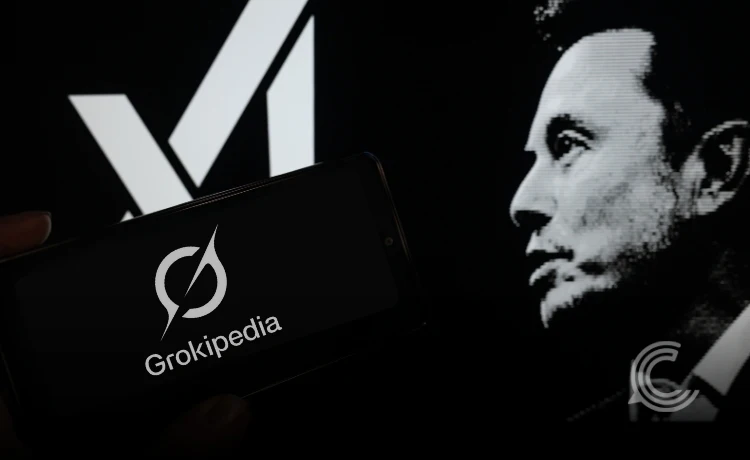Elon Musk Launches Grokipedia: How It Works and Why It Crashed

Key Points:
- The site, launched by Elon Musk’s xAI, experienced major downtime shortly after going live due to an overwhelming surge in traffic, a phenomenon often called the “Reddit hug of death” in the tech world
- Grokipedia’s core mechanism relies on the Grok AI model for generating and “fact-checking” content, contrasting sharply with Wikipedia’s community-driven, human editorial model
- Early analysis showed that, despite its anti-establishment stance, Grokipedia’s initial content was heavily adapted from Wikipedia under a Creative Commons license
Grokipedia, the online encyclopedia from Elon Musk’s AI company xAI, is now live (in version 0.1). However, that launch was met with immediate high traffic and a subsequent, albeit temporary, system failure.
The website, which aims to be a free and less-biased competitor to the long-established Wikipedia, briefly went offline shortly after its debut, only to be restored later the same evening, Business Insider reported.
How the Grok AI Engine Powers the Encyclopedia
Grokipedia represents a new category of knowledge resource, leveraging a large language model (LLM) for content generation rather than a global community of volunteer editors. The articles on the site are generated by xAI’s Grok AI model, the same system that powers the conversational chatbot on the X platform.
This deep integration is one of the service’s core selling points. By drawing on the vast, real-time data stream from X, Grok AI theoretically grants the encyclopedia a constant, up-to-the-minute awareness that traditional, editor-driven platforms often lack.
The platform operates differently from a standard chatbot like ChatGPT or Grok itself. Users currently search only by subject name (e.g., “Paris” or “Blockchain”) to retrieve a concise, AI-curated article. The platform’s early version, v0.1, launched with approximately 885,000 articles, a fraction of Wikipedia’s content, but is expected to grow rapidly. xAI also claims its articles are “Fact-checked by Grok,” providing a unique, though opaque, layer of internal verification.
Why It Crashed
The initial instability that led to the brief service interruption has been attributed to the massive surge in simultaneous users attempting to access the new platform. Building an AI-driven system to handle a high-volume global user base,especially one that is generating large blocks of text on demand, is computationally demanding.
While xAI has not released a detailed post-mortem, such early-stage outages in new, high-profile tech launches are typically a combination of scalability issues and rapid, last-minute software deployment. The xAI Status page for Grok has shown past instances of service disruptions and slower response times due to high traffic volumes, indicating the underlying infrastructure is still maturing.
The quick restoration suggests the issue was a server-side load problem rather than a fundamental flaw in the Grok AI model itself, though the experience serves as a reminder of the fragility of nascent AI systems under peak load.
The Pursuit of Neutrality and Early Bias Concerns
Musk has positioned Grokipedia as a necessary antidote to the alleged political biases he and others claim exist in Wikipedia’s editorial process. The goal is to provide a knowledge base that is “maximally truthful, useful, and curious.” However, the AI-generated content has immediately drawn criticism for appearing to introduce its own, distinct biases.
For example, The Washington Post and other outlets highlighted that the Grokipedia entry on ‘gender’ started with a sentence framing it as a “binary classification,” a notably different and more conservative definition than the one found on Wikipedia. Furthermore, the entry on Musk himself was reported to be highly laudatory, concluding with a section titled “Recognition and Long-Term Vision” that expounded on his philosophical beliefs in glowing terms.
The content suggests that while the platform has replaced human editors with an algorithm, the underlying training data and architectural guardrails of the Grok AI model may embed a different, but equally observable, ideological slant.
The Alternative Approach and Its Trade-Offs
The main difference between Grokipedia and its predecessor lies in their models of truth and knowledge. Wikipedia is founded on the principle of human consensus and transparent revision history, with articles evolving through open collaboration.
Conversely, Grokipedia relies on algorithmic synthesis, where a powerful LLM, initially trained on a massive dataset, interprets and presents the “facts.”



